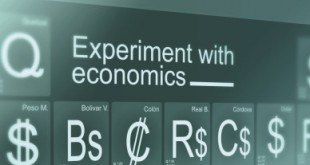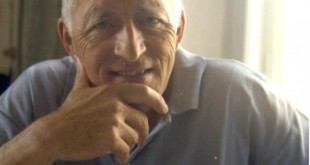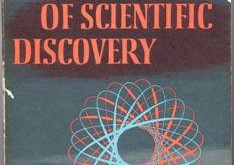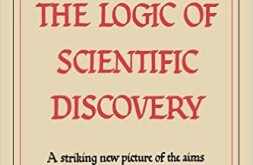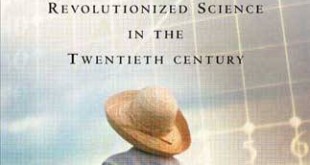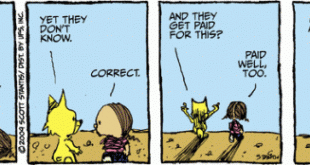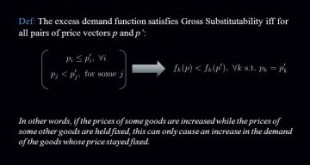Noahpinion and the empirical ‘revolution’ in economics But I think that more important than any of these theoretical changes … is the empirical revolution in econ. Ten million cool theories are of little use beyond the “gee whiz” factor if you can’t pick between them. Until recently, econ was fairly bad about agreeing on rigorous ways to test theories against reality, so paradigms came and went like fashions and fads. Now that’s changing. To me, that seems like a much bigger deal than any...
Read More »Teaching macroeconomics
To what extent has – or should – the teaching of economics be modified in the light of the current economic crisis? … For macroeconomists in particular, the reaction has been to suggest that modifications of existing models to take account of ‘frictions’ or ‘imperfections’ will be enough … However, other economists such as myself feel that we have finally reached the turning point in economics where we have to radically change the way we conceive of and model the economy … Rather than...
Read More »How to get published in ‘top’ journals
If you think that your paper is vacuous, Use the first-order functional calculus. It then becomes logic, And, as if by magic, The obvious is hailed as miraculous. Paul Halmos
Read More »Bayesianism — confusing degree of confirmation with probability
Bayesianism — confusing degree of confirmation with probability If we identify degree of corroboration or confirmation with probability, we should be forced to adopt a number of highly paradoxical views, among them the following clearly self-contradictory assertion: “There are cases in which x is strongly supported by z and y is strongly undermined by z while, at the same time, x is confirmed by z to a lesser degree than is y.” Consider the next throw with a homogeneous die. Let x be...
Read More »Heckscher-Ohlin and the ‘principle of explosion’
The other day yours truly had a post up on the Heckscher-Ohlin theorem, arguing that since the assumptions on which the theorem build are empirically false, one might, from a methodological point of view, wonder how we are supposed to evaluate tests of a theorem building on known to be false assumptions. What is the point of such tests? What can those tests possibly teach us? From falsehoods anything logically follows. Some people have had troubles with the last sentence — from...
Read More »Elegy of the uprooting (personal)
Elegy of the uprooting (personal) This one is for you — all you brothers and sisters of mine, struggling to survive in civil wars, or forced to flee your homes, risking your lives on your way to my country or other countries in Europe. May God be with you. [embedded content] Then the righteous will answer him, ‘Lord, when did we see you hungry and feed you, or thirsty and give you something to drink? When did we see you a stranger and invite you in, or needing clothes and clothe you? When...
Read More »The lady tasting tea
The lady tasting tea The mathematical formulations of statistics can be used to compute probabilities. Those probabilities enable us to apply statistical methods to scientific problems. In terms of the mathematics used, probability is well defined. How does this abstract concept connect to reality? How is the scientist to interpret the probability statements of statistical analyses when trying to decide what is true and what is not? … Fisher’s use of a significance test produced a number...
Read More »Robert Lucas the storyteller
Robert Lucas the storyteller We are storytellers, operating much of the time in worlds of make believe. We do not find that the realm of imagination and ideas is an alternative to, or retreat from, practical reality. On the contrary, it is the only way we have found to think seriously about reality. In a way, there is nothing more to this method than maintaining the conviction … that imagination and ideas matter … there is no practical alternative” Robert Lucas (1988) What Economists Do...
Read More »Magoo economics
There is widespread disappointment with economists now because we did not forecast or prevent the financial crisis of 2008. The Economist’s articles of July 18th on the state of economics were an interesting attempt to take stock of two fields, macroeconomics and financial economics, but both pieces were dominated by the views of people who have seized on the crisis as an opportunity to restate criticisms they had voiced long before 2008. Macroeconomists in particular were caricatured as...
Read More »The gross substitution axiom
The gross substitution axiom Economics is perhaps more than any other social science model-oriented. There are many reasons for this — the history of the discipline, having ideals coming from the natural sciences (especially physics), the search for universality (explaining as much as possible with as little as possible), rigour, precision, etc. Mainstream economists want to explain social phenomena, structures and patterns, based on the assumption that the agents are acting in an...
Read More » Lars P. Syll
Lars P. Syll

